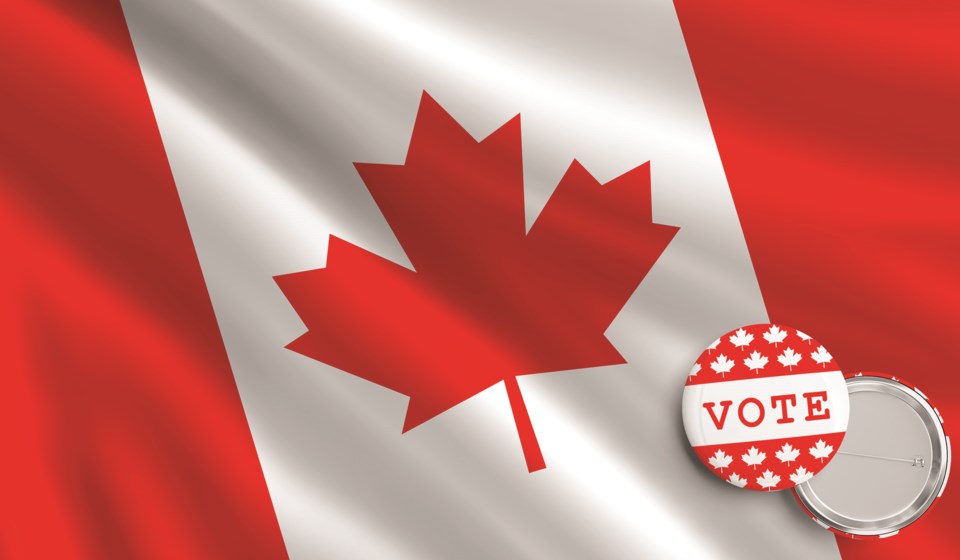I don’t know why I show up to election all-candidates debates and expect those running for office to meaningfully answer the majority of questions put to them.
It’s like that old adage about the definition of insanity being repeating something over and over again but expecting different results. Whistler’s Sept. 8 all-candidates debate suffered from this, but it was left in the dust by the English federal leaders debate on Sept. 9.
Sometimes watching candidates does change one’s perception of those running though, as it did last week for many—and here let me offer my thanks to all those who participate in politics at every level. With the vitriol of social media and a “public” that commonly fails to educate itself, it’s a path fraught with negativity and pitfalls. You need a thick skin.
But voters need a thick skin too these days as we drown in promises and commitments that won’t come to fruition, face a world that is experiencing the existential threat of climate change, and exhaust ourselves as we cope with trying to maintain a standard of living in an increasingly expensive nation.
(I’m not addressing Indigenous issues in this column as they need their own space— except to say that the some parties’ position on the United Nations Declaration on the Rights of Indigenous Peoples is nothing less than willfully ignorant.)
In Canada we are experiencing the greatest rate of inflation we have seen since 2003—4.1 per cent. In the real world that means that each one of us needs to spend more than $700 a year more to keep food on our tables. Are you getting any pay increases this year in your job to match or exceed inflation? Unlikely, given the uncertainty of our COVID-19 world and the havoc this tiny virus has wrought upon us.
(Meanwhile many companies in Canada and the wealthy have made record profits and earnings during the pandemic. Canada’s top 20 billionaires only got richer during COVID-19, gaining an average of $2 billion each.)
I have written in this space many times before about how important it is for us to elect federal leaders with an action plan for addressing climate change (please make sure you go and educate yourself about what the parties’ plans are on this topic—at least one of them is almost non-existent). But voters also need to look at how each party’s platform will impact our cost of living and our standard of living and those of our children.
I still laugh every time I recall a poll done in the U.S. where one of the highest-ranked status symbols was being able to boast that you had a stay-at-home parent to raise the kids!
The National Post did a survey recently asking voters what the most important issues were for them in this election: No. 1 was the cost of living, second was increased healthcare funding, third was post-pandemic economic recovery, fourth was managing the pandemic, and the list went on. Addressing climate change was seventh.
The cost of living can encompass many things, of course, including the cost of housing, paying such things as your heating bill, internet costs, childcare costs, transit and so on. These are all things that impact residents of Whistler.
All the political parties touch on these issues in their platforms and offer their version of solutions—all come with a hefty price tag.
This federal election is also the second time the Parliamentary Budget Office has been able to look at the parties’ platforms and offer an opinion on if the costs given to voters are realistic. The process entails the parties giving their budgets to the PBO, which then assesses them and sends them back and when the parties give their consent it can be posted the Office’s website.
Go and take a look and see what you think.
While the PBO is working hard, the shortened campaign timeline is creating a real challenge. As of Sept. 13 there were 17 costed NDP platform promises (financial support for mental health, for example), 31 for the Conservatives (introducing a month-long GST holiday in December, for example), and 11 for the Liberals (introduction of registered home savings plans, for example).
Obviously the platforms of all the parties are going to cost billions of dollars, which leaders claim will be offset by taxation on different segments of the residents and businesses of Canada.
We’ve heard this all before.
We can’t forget that living through a pandemic is unlike anything we have experienced before economically. And I for one am grateful to live in a nation where we were able to support each other financially as we navigate through it.
But I’d by lying if I said I wasn’t worried about the cost of it all.
In 2018, the last time the Department of Finance released a long-term analysis, it expected Ottawa to remain in deficit until 2040 given expectations for economic growth and the government spending and tax policies then in place. More recently, the PBO released an analysis of Ottawa’s long-term finances and concluded that, absent change in spending and tax policies, the federal budget would not balance until 2070.
I’ll be dead by then and my oldest child, currently at university, will be 71 years old.




